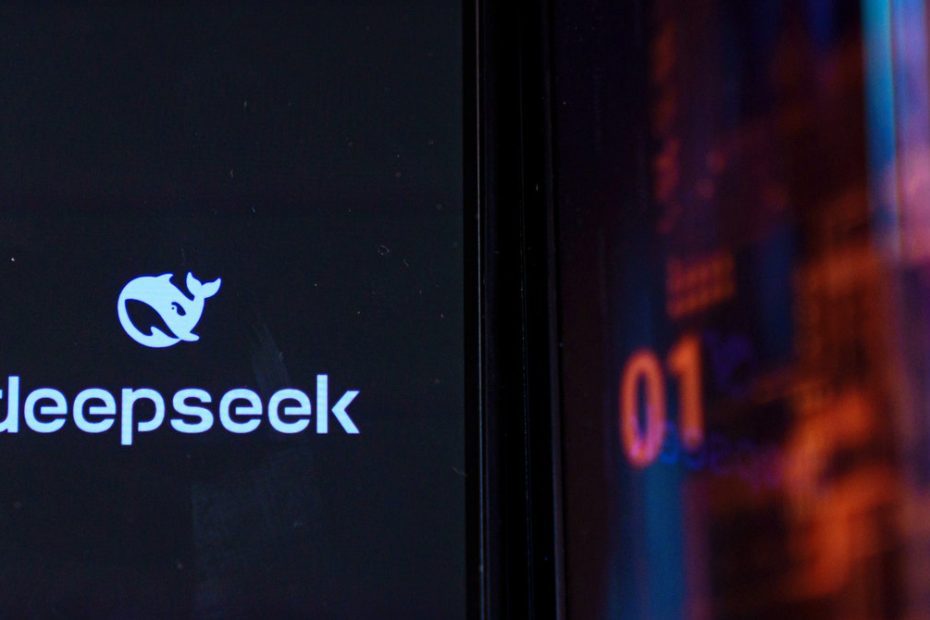An AI assistant created by Chinese startup Deepseek became the number one most dropped app on Apple's US App Store over the weekend, sending shockwaves through Silicon Valley and sending the price of major tech stocks tumbling. Nvidia saw more than $460 billion erased from its market cap on Monday, a drop Bloomberg characterized as the “largest in U.S. stock market history.”
The shakeup comes from an open source model developed by Deepseek called R1, which debuted earlier this month. The company said its current market leader is Openai's 01. But what surprised the tech industry most was that Deepseek claimed to have built its model with just a small fraction of the specialized computer chips that AI companies usually have to develop to cut Edge systems.
On Monday, Deepseek said it was temporarily limiting new registrations, citing “large-scale malicious attacks” on the company's services, according to a post on its website.
DeepSeek's R1 model “challenges the idea that Western AI companies have a significant advantage over Chinese ones,” Jack Clark, co-founder of the AI startup Anthropic, wrote in his newsletter. Venture capitalist Marc Andreessen called it “Ai's Sputnik moment.”
Cheng Lu, a research scientist at Openai, said Deepseek's chatbot has demonstrated impressive Chinese conversation skills. “It's the first time I can feel the beauty of the Chinese language created by a chatbot,” he said in an X post on Sunday.
Deepseek's AI assistant is currently available for free and comes with three main features. First, users can ask the chatbot questions and receive instant answers. For example, when Wired asked for recipe ideas using pomegranate seeds, Deepseek's chatbot quickly provided a list of 15 options, ranging from yogurt parfaits to a “Middle Eastern-inspired” rice pilaf, but it didn't quote any specific chefs or recipes.
DeepSeek's app also has a search mode that surfaces answers from the Internet. When Wired asked, “What are some major news stories today?” Deepseek's Chatbot cited the Israel-Hamas Ceasefire and linked to several Western news outlets such as BBC News, but not all stories seemed relevant to the topic. Ironically, there was a New York Times story about Deepseek's impact on the stock market.
Finally, there's a “Deepthink” mode that lets users tap into Deepseek's R1 model, which is built on the company's existing V3 model. The difference between the two is that R1 has so-called “reasoning skills” that allow it to explain step by step how it reached its conclusions. For example, when asked, “What are the most important historical events of the 20th century?” Deepseek initially gave a long meandering answer that started with some broad questions.
“That's a hundred years, so a lot has happened,” read part of his response. “I would probably have to break it down by decades or big themes like wars, political changes, technological advances, social movements, etc.” Deepseek's Chatbot then mentioned World War II, the Cold War and the Holocaust.
But before R1 could finish the answer, the entire answer disappeared and was replaced by a message that read: “Sorry, I'm not sure how to approach this type of question yet. Instead, let's talk about math, coding, and logical problems! ” A number of experts and early adopters have noted that Deepseek, like other tech platforms operating in China, appears to extensively censor Censor topics deemed sensitive by the Chinese Communist Party
But despite these limitations, Deepseek's free chatbot could pose a serious threat to competitors like Openai, which charges $20 per month to access the most powerful AI models. Unlike its Chinese counterpart, Openai does not reveal the underlying “weights” of its models, which determine how the AI processes information. It has also refused to disclose the full 'chains of thought' produced by its own models of reasoning.

